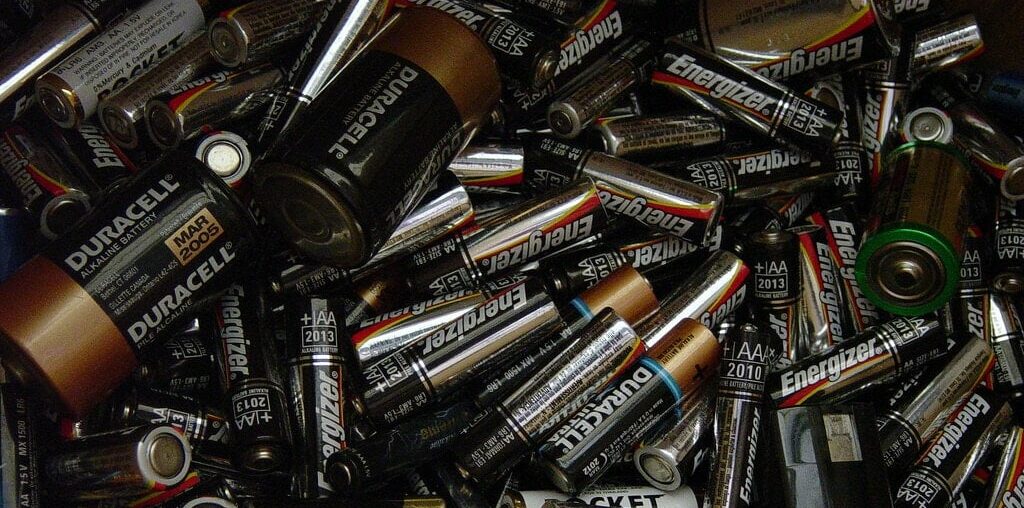Many Canadians living in the country’s most populous province are avid recyclers. But a new study suggests that the disposal of single-use batteries aren’t top of mind for Ontario households.
The research was conducted by Environics Research Group for Stewardship Ontario. The private, not-for-profit company runs then province’s Orange Drop program.
It found that a third of Ontarians (35 per cent) say they typically get rid of old batteries by throwing them in the garbage or including them in their Blue Box. Although the Blue Box may seem like a good place to toss those batteries, these items aren’t accepted in the program.
And even those who normally do the right thing occasionally toss out a battery or two. One in three (33 per cent) admit they’ve thrown out a battery in the garbage in the past year.
“It could be that you are hanging onto your batteries because you don’t know what to do with them, or simply putting them in the garbage with regular household waste because you don’t think only one battery matters,” said Paul Gerard, spokesperson for Stewardship Ontario. “We want to change both bad habits and encourage Ontarians to make battery recycling part of a positive habit. Some batteries contain materials that are harmful to our environment if disposed of incorrectly, and it’s everyone’s responsibility to ensure that doesn’t happen.”
Nearly half (47 per cent) of those who throw batteries in the household trash say they do not know where to bring them. Meanwhile, four in ten (39 per cent) were unaware batteries should not be thrown out. And interestingly, two in ten (23 per cent) say they don’t use enough batteries for proper disposal to matter.
Stewardship Ontario narrowed down their research findings even further. The team has found that certain segments of the population have certain battery disposal habits.
The “Unaware and Uncaring” group is more likely to be young adults (under the age of 34) and make up 28 per cent of the population. They buy few batteries and are unaware of the proper recycling procedures. This segment is the most likely to throw their batteries into the regular garbage.
Members of “Only if it’s Easy” (19 per cent of Ontarians) use an above average number of batteries, and while they are generally aware of the proper procedures for disposal they do not always follow through due to a perceived lack of convenience
“Where, Why and How” Ontarians (15 per cent of the populations) support household recycling but are unaware of the proper procedures for disposal of used batteries.
Of those who throw their batteries into the regular trash, nearly all (95 per cent) said they would be somewhat likely to change their ways if it was easier for them to recycle.
And then there’s the case of the battery hoarder. It’s probably wise to assume that many junk drawers across the province are also seeing their fair share of used batteries. The survey reveals that the average household has 15 used batteries that are earmarked for recycling – but haven’t made it past the front door yet.
Other survey highlights include:
- Nearly half (46 per cent) of respondents said that there should be fines imposed for not recycling, or that it should depend on circumstances, such as the type of material, the amount and the frequency of offenses.
- Households in Ontario on average have 12.6 products or appliances that require batteries. Given that there are 4.8 million households in Ontario, that’s more than 60 million batteries that could be recycled.1
- Consumer technologies such as remote controls and cameras are the largest use of batteries, followed by safety devices such as smoke detectors and household appliances. And while parents may attest to the fact that Wii and remote control cars tend to eat up batteries the fastest, gaming devices and toys ranked lower on the reasons for a battery purchase.
Stewardship Ontario has put out a list of common battery myths and attempted to expel them:
- Myth: Someone sorts out batteries and other potentially harmful wastes from my garbage.
- Fact: Many single-use batteries contain hazardous materials such as mercury and lead, which are known to be toxic to animals and humans. If not properly disposed of, these chemicals end up in landfills where they can leak into the ground and can create toxic mixtures that may flow into our drinking water. Although household batteries comprise a small fraction of total garbage, they are responsible for between 50 and 70 per cent of all heavy metals found in landfills.
- Myth: Once a battery dies, it has no other use.
- Fact: Used batteries still have life. Not only does separating batteries from your garbage prevent potentially harmful materials from contaminating our drinking water, but properly recycled batteries have valuable resources that can be recovered and used as new asingredients in producing new goods. In fact, it is much more efficient to recycle a metal than mine it from the ground.
- Myth: Recycling batteries is not convenient.
- Fact: There are more than 2,000 battery collection sites established throughout Ontario, consisting of municipal depots, special collection events and a network of retail stores, libraries, community centres, schools and other easily accessible drop-off points for consumers. Visit Makethedrop.ca to find the nearest drop-off centre to you simply by entering your postal code.



